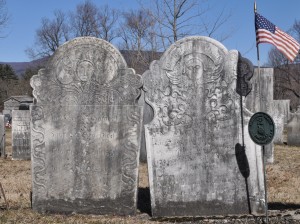
Today, eastern Massachusetts celebrates Patriots Day. The holiday marks the battles of Lexington and Concord (April 19, 1775) that began the American Revolution.
Patriots Day is also Boston Marathon day, a fitting sports event for the day. A successful race with thousands of runners requires years of preparation, attention to detail, communication and organization. That’s precisely what allowed a small number of colonists to keep their local armories and leaders out of British hands.
The battles pitted American irregulars, the Minute Men, against a professional British column. But how had they come to fight that long day?
For generations of Americans Henry Wadsworth Longfellow‘s ‘Paul Revere’s Ride’ (1861) held the answer:
Listen, my children, and you shall hear
Of the midnight ride of Paul Revere,
On the eighteenth of April, in Seventy-Five:
Hardly a man is now alive
Who remembers that famous day and year.
****
So through the night rode Paul Revere;
And so through the night went his cry of alarm
To every Middlesex[1] village and farm,–
A cry of defiance, and not of fear,
A voice in the darkness, a knock at the door,
And a word that shall echo forevermore!
For, borne on the night-wind of the Past,
Through all our history, to the last,
In the hour of darkness and peril and need,
The people will waken and listen to hear
The hurrying hoof-beats of that steed,
And the midnight message of Paul Revere.
And every year on the 18th of April, some publication debunks Longfellow’s poem and, more or less, Revere’s ride. Rightly… sort of. But they miss the essence and greatness of both.
Revere’s accomplishment was much, much greater than a single ride. He had actually made many rides over several years before April 18. He criss-crossed southern New England – and going as far south as Philadelphia – organizing communications among the future rebels who were a distinct minority of the colonial population.
Road conditions were awful in the 1770s in the best summer conditions. And summer didn’t last long. [2] A coach took two weeks to reach New York from Boston. Yet in what was probably then as now New England’s fifth season, Mud Season, within 24 hours of the alarm Minute Men were moving toward Lexington from Portland, Maine, and Hartford, Connecticut.
Poets don’t usually write hymns to behavior best suited for management or organizational behavior books. But historians can bring out the heroism in these efforts.
David Hackett Fischer is both an excellent historian and a fine writer. His Paul Revere’s Ride (1994) deals with the familiar elements of the story. What makes it different and important are the geographical, social and cultural contexts in which it places Revere and his co-conspirators.
Fischer’s book contains many, many ‘is that right?!’ moments. For instance, Longfellow’s poem was inspired not by the fact of Revere’s ride but by the urgency the poet felt to rouse the North at the start of the Civil War. [3] In these days of the Tea Party’s ascendency, Fischer’s Paul Revere’s Ride is must reading.
The lesson I take from Paul Revere and compatriots in the Sons of Liberty is democratic politics’ oldest one: Organize! Organize!! And when you get done, go out and organize some more!!! [4]
-30-
Notes:
[1] Lexington and Concord, as well as Medford where Revere was stopped, are in Middlesex County which also happened to be where Longfellow lived.
[2] One of my favorite books when I started reading was Robert Lawson’s Mr. Revere and I: Being an Account of Certain Episodes in the Career of Paul Revere,Esq. as Revealed by His Horse (1953), an affectionate, humorous retelling that adults often enjoy as much as children. The current cover doesn’t reflect the book’s tone.
[3] My only quibble with Prof. Fischer’s Paul Revere’s Ride is that he chose not to reprint the Longfellow poem. The poem is vital to his story.
[4] Ok. Ok. It’s an old union slogan for which I can’t find a reasonable source. It’s still true.
Recent Comments